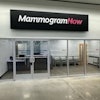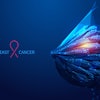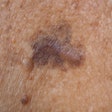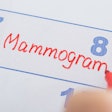Recommendations taken from a new literature review published in the April issue of the Journal of the American Medical Association could be "potentially deadly" for some women, according to the American College of Radiology (ACR) and the Society of Breast Imaging (SBI).
Dr. Lydia Pace and Dr. Nancy Keating from Brigham and Women's Hospital performed a meta-analysis that summarized mammography screening data. The authors suggested that breast cancer diagnosis and treatment may one day be more individualized than one-size-fits-all screening guidelines (JAMA, April 2, 2014, Vol. 311:13, pp. 1327-1335).
However, currently basing breast cancer screening primarily on risk, as discussed in the JAMA article, would miss the overwhelming majority of breast cancers present in women and result in thousands of unnecessary deaths each year, ACR said in a statement. Recommendations in the JAMA article hewed closely to those made in 2009 by the U.S. Preventive Services Task Force (USPSTF), which the breast imaging community has criticized.
An analysis has shown that if USPSTF breast cancer screening guidelines are followed, approximately 6,500 additional women each year in the U.S. would die from breast cancer, according to the organization. Thousands more could also endure more extensive and expensive treatments, compared to what they would need if their cancers were found early by a mammogram.
Pace and Keating placed too much emphasis on the obsolete and low lifesaving benefit of mammography claimed in outdated or discredited studies, according to ACR. For example, the Canadian National Breast Screening Study (CNBSS) has been widely discredited and should not be considered alone or in a meta-analysis.
All major U.S. medical organizations with expertise in breast cancer care, including the American Congress of Obstetricians and Gynecologists, the American Cancer Society, and the National Accreditation Program for Breast Centers, recommend that women begin receiving annual mammography exams at age 40, ACR said, adding that it and SBI continue to stand by these recommendations.



















